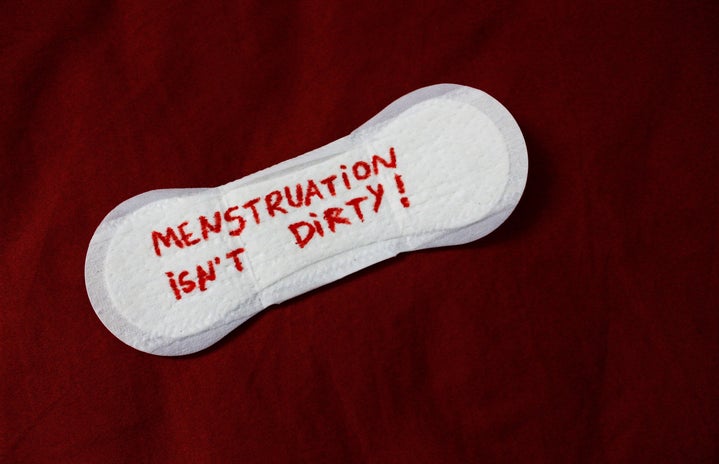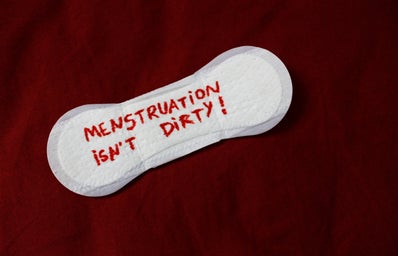Periods affect around half of the world’s population, and yet, bringing up the topic in a conversation involving both men and women is considered inappropriate at best, and disgusting and shameful at worst. And that is exactly when gender inequality rears its ugly head again, reminding women that while men can express themselves freely, we should keep our “women’s problems” to ourselves, or, if we really have to, address them in a circle of our closest girlfriends, behind closed doors and, preferably, closed curtains as well.
Living in a society created by and for men, we cannot celebrate our health and bodies freely. Instead, we experience shame and embarrassment around periods. We suffer in silence, terrified of speaking up and being labelled as weak, overly feminine, and essentially undeserving of equality. Opening up the conversation can be tricky because we have been taught to hide the processes of our bodies that aren’t considered attractive or desirable, and we are often labelled as oversensitive or hysterical when we put our health first. How many times have we been dismissed for being “on our period” by someone who barely knows us, and/or who has no idea what a menstrual cycle entails?
We have been taught to be strong, to endure our pain, and to rarely prioritise our pleasure. We have learned to cover ourselves, both physically and metaphorically, in order to be attractive and keep ourselves a mystery, while men can talk about their bodies without sparking controversy or being made to feel inadequate.
The stigma surrounding periods is caused by both a lack of understanding and a lack of discussion; girls rarely feel comfortable enough to open up, simply because they fear having an honest conversation. Will I be regarded differently – as weak and whiny, instead of strong and honest? Isn’t it dirty to talk about what goes on “down there”? If so many girls have a limited understanding of their bodily functions, the majority of boys have only a vague idea about periods or the cycle as a whole. Men haven’t been taught to even attempt to understand it. This lack of information, awareness, and understanding of periods undoubtedly leads to misogyny, sexism, and inequality, all of which enlarge the gap of the potentially threatening difference between men and women. Many young couples avoid the topic altogether, having concluded that during “that time of the month” it isn’t wise to communicate freely and openly, but rather to pretend that the cycle doesn’t exist and silently wait for it to pass.
However, with knowledge comes power. If we all educate ourselves on the topic, then we can become freer and more equal, such that women will not see their periods as dirty or shameful, and men won’t use them as a tool of oppression. The awareness cultivated through education will not only erase the prejudice but also uncover health issues that would otherwise be unaddressed. After all, a lot of the period-related suffering (PMS, PMDD, period pain, etc.) could be eased if only we talked a little bit more and judged a little bit less.
I propose that we open the conversation and speak up, that we work through our taught shame to not only empower ourselves but also the men around us. Let’s ditch the society that we are living – or hiding – in, and create one where the acceptance and awareness of periods, and of many more issues that still divide us, will be as common and healthy as the process of menstruating itself.
If you want to go ahead and start educating yourself about periods, these are some avenues I recommend you check out:
- Period Power, written by Maisie Hill has been a great source of education and inspiration for me, and I believe it can be for you, too! This book talks about the biology behind the menstrual cycle, teaches you how to live in harmony with your monthly cycles, and encourages you to regard them as a source of wisdom and empowerment.
- Alternatively, you can check out podcasts dedicated to the topic, such as the “PERIOD Podcast,” “The Period is Powe”r podcast or “The Period Party” podcast.
- And if you’ve ever experienced period-related shame, I recommend If Men Could Menstruate, a witty essay written by the feminist icon Gloria Steinem, in which she uncovers the male-created period stigma, and reimagines menstruating as opposed to typical gender roles.


